Key Information
CPD Hours: 16 hours
Course Length: Four weeks
Course Format: A mixture of pre-recorded weekly webinars (which can be reviewed throughout the course), live weekly Q&A sessions with the tutor, self-assessment tasks, supplementary reading material and tutor-moderated online discussion forums
Enrol Now
This course may run again in the future. To register your interest please contact us.
Alternatively you can download and email using our Registration Form
Course Information
- Oral tumours: fibrosarcoma, squamous cell carcinoma, malignant melanoma
- Hepatic and exocrine pancreatic tumours: hepatocellular carcinoma, bile duct carcinoma, pancreatic adenocarcinoma
- Gastric and intestinal tumours: gastric carcinoma, intestinal adenocarcinoma, gastrointestinal stromal tumour, leiomyosarcoma
- Perianal tumours: anal sac adenocarcinoma, perianal adenoma/adenocarcinoma
- Diagnostic approaches including the importance of sentinel lymph nodes and immunohistochemistry
- Multimodal treatment options including surgery, radiation therapy, chemotherapy, targeted therapy and immunotherapy
Unfortunately we are unable to run this course in February 2023, to register your interest please email cpd@rvc.ac.uk
Unsure of the appropriate differential diagnoses or diagnostic approach for oral tumours? is it worth treating large hepatic masses? Confused about the prognosis for different intestinal or perianal tumours?
Gastrointestinal tumours are common in dogs and cats, and there are key differences in tumour behaviour between species. Achieving a definitive diagnosis is important, as treatment approach and prognosis differs depending on tumour type. This course will cover non-lymphomatous oral, hepatic, exocrine pancreatic, gastric, intestinal and perianal tumours in dogs and cats with a focus on diagnosis and treatment. The latest treatment approaches will be discussed, including immunotherapies, and up-to-date prognostic information provided.
Why do this course?
This course will help build your confidence managing gastrointestinal tumours in dogs and cats. By the end of the course, you will be able to formulate an appropriate diagnostic approach based on clinical presentation, and a subsequent treatment plan tailored to your patient’s tumour type and individual needs. Additionally, you will be able to provide accurate prognostic information to owners.
The webinars for this course will be pre-recorded and can be viewed as recorded versions throughout the course.
Andy Yale, BVMedSci BVM BVS PGCertVetEd PGDipVCP MVetMed DipECVIM-CA (Oncology) FHEA MRCVS
Lecturer in Veterinary Oncology
The Royal Veterinary College

